An online criminal justice degree may be right for you if you’ve ever dreamed of a career as a police officer, detective, or any other position in other branches of law enforcement, such as the FBI, CIA, or even the Secret Service.
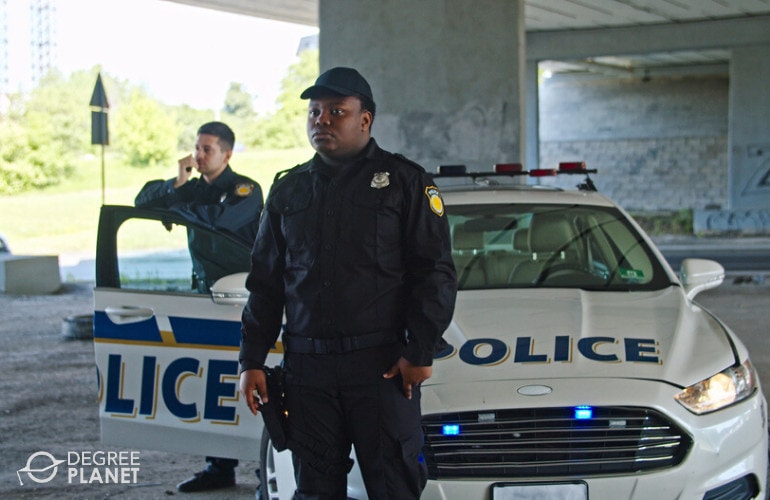
Editorial Listing ShortCode:
A degree in criminal justice can help open the door to a variety of careers.
Online Criminal Justice Degrees
There are five main specializations most people go into when working towards a criminal justice degree.
These are all related to criminal justice, but most are specialized.
Criminal Justice
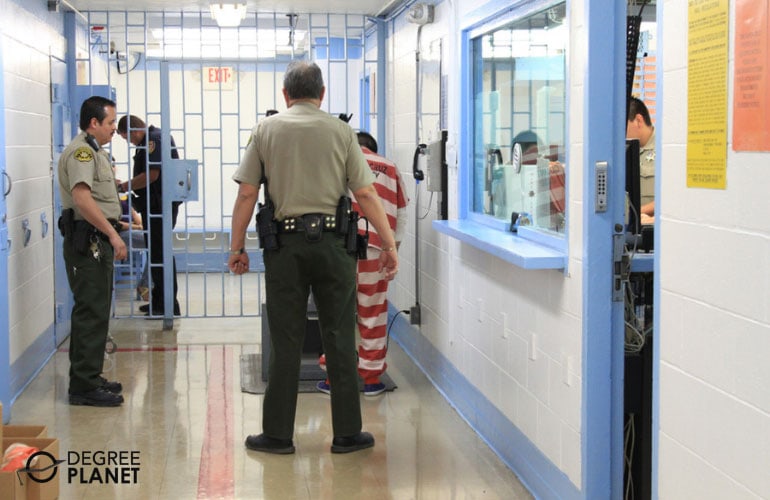
A degree in criminal justice may be the perfect degree if you’re looking for a broad overview of the field. If you’re unsure of exactly what type of career you want in the criminal justice field, this may be a great degree to pursue. Furthermore, if you just want a very well-rounded criminal justice education, this may be the degree you want.
Even though there are exceptions to every rule, most people who get this non-specialized degree go into some form of law enforcement or security field after graduation.
Editorial Listing ShortCode:
Many courses typically found in criminal justice degree programs can help prepare you for careers in security or law enforcement. Some potential classes are Introduction to Criminal Science, Introduction to Criminal Law, Foundations of Corrections, and Gathering and Understanding Evidence.
Most people with this general degree go on to become police, probation, or corrections officers, jailers, homicide detectives, crime scene investigators, or security guards.
Corrections
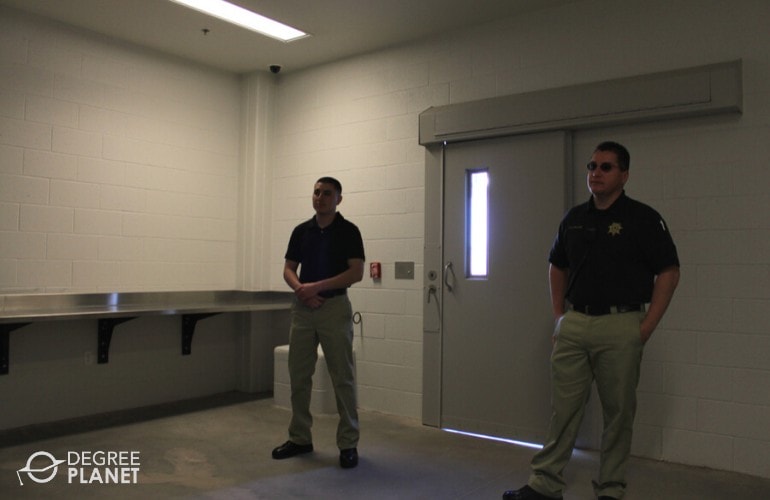
If your interests lie more in trying to help rehabilitate criminals, you might want to turn your degree focus to corrections. People with this degree usually deal with criminals only after they’ve been convicted. This degree can help prepare you for working inside a prison or other correctional facility as a guard, corrections officer, or another position.
This degree can also help you develop the skills you need to deal with criminals after they’ve been released back into their lives after prison. Most criminals, when released, don’t get to leave without a support system in place.
Editorial Listing ShortCode:
This support system usually involves some sort of corrections professional on the outside with whom they have to meet at regular intervals. This can be a parole officer or probation officer.
Those who work in inside-facilities positions not only keep inmates calm and cooperative but also work with them on rehabilitation so that they can hopefully one day lead normal, crime-free lives.
Probation or parole officers try to keep recently freed inmates on stable, law-abiding paths that’ll keep them from relapsing into old ways.
Crime Scene Investigation (CSI)

If you’re less of a people person and more of a behind-the-scenes, in-the-lab person, you may consider a degree in crime scene investigation, rather than general criminal justice. This degree path may be a great one for you if you’re very detail-oriented, enjoy solving puzzles or complex problems, like research and lab work, and don’t mind getting a little dirty.
If you’ve ever watched an episode of any procedural cop show, you’ve likely seen crime scene investigators at work. Crime scene investigators locate, tag, bag, and photograph evidence at crime scenes. They are responsible for keeping up with the evidence, studying it, and figuring out its significance.
Editorial Listing ShortCode:
Those in this job typically aren’t squeamish. Sometimes evidence will include blood and other bodily fluids, parts of human bodies, soiled clothing, rotten food, and trash. This is definitely a job in which having a strong stomach can be very beneficial.
People with this degree often become crime scene investigators, forensic investigators, evidence technicians, and crime scene analysts.
Emergency Management
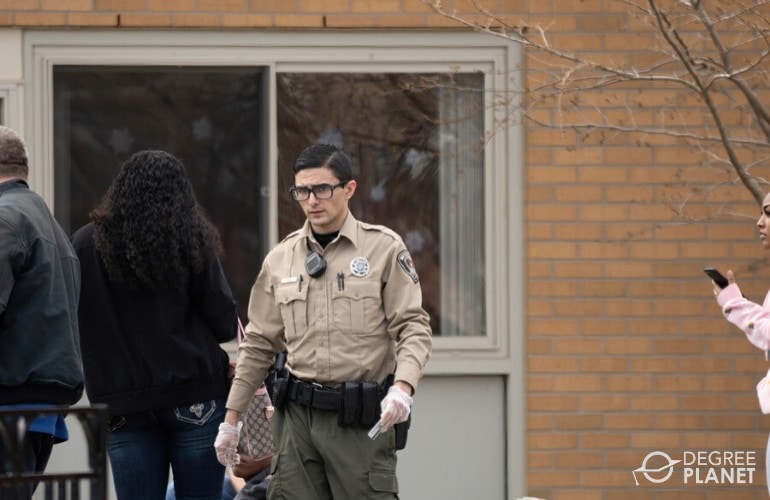
A large percentage of people who graduate with bachelor’s degrees in emergency management go on to work for FEMA, the Federal Emergency Management Agency. With this in mind, many degree programs in the field of emergency management cover courses that can help ready you for this career path.
FEMA breaks emergency management into four different stages. These are mitigation, preparedness, response, and recovery. FEMA strongly believes this process is the same whether you’re dealing with a natural disaster, terrorist attack, hostage situation, or some other type of large-scale emergency. Courses in most emergency management degree programs reflect this.
Editorial Listing ShortCode:
In this program, students typically learn many things that correspond to these four stages. Courses often include everything from the correct way to formulate emergency procedures to understanding the vulnerabilities and weak spots in emergency and disaster response systems to how to coordinate with various local and federal agencies for the best results.
This degree path might be right for you if you’re an excellent communicator with a calm disposition that keeps you from panicking in dire situations. Previous experience in government or criminal justice positions can help too.
Homeland Security

If your personality and career goals tend more towards the patriotic, a degree path in homeland security might be a great choice for you.
While there are definitely elements of both generalized criminal justice and emergency response management, homeland security puts a stronger emphasis on government work and large-scale threats to the security of the U.S.
Editorial Listing ShortCode:
Pursuing a degree in homeland security can help prepare you for careers in a wide variety of different fields, including but not limited to cyber security, intelligence, emergency management, and transportation security.
Many agencies such as the FBI, U.S. Coast Guard, U.S. Customs and Immigration Departments, CDC, and TSA, prefer to hire graduates with degrees in homeland security. If your dream career involves working for one of these organizations, you might want to seriously consider this degree.
Criminal Justice Curriculum & Courses

Depending on the specific degree specialization you enroll in, your courses will vary. There are some courses, though, such as Introduction to Criminal Justice, that you will likely have to take in any of the specializations we’ve listed.
Here are ten of the most common courses taken in criminal justice degree programs:
Introduction to Criminal Justice: This is an overview of various topics in criminal justice and provides a foundation for future courses.
Theory and Practice of Criminal Justice: This course is an intermediate-level criminal justice course that discusses how to put into practice everything learned in the intro-level class.
Principles of Investigation: This class teaches how to conduct a criminal investigation.
Crime Prevention: This course focuses on methods of predicting and preemptively preventing crime in dangerous areas.
Drugs and Society: This class discusses the most abused drugs in America, the signs someone is using them, and drug laws.

Deviance and Social Control: This course provides an overview of sociological and psychological perspectives on deviance and criminality and how they can be studied and used to prevent further crime.
Criminal Evidence: This class teaches students how to find, collect, and evaluate evidence from crime scenes.
Juvenile Justice: This course focuses on juvenile offenders and their rehabilitation.
History of Corrections: This class gives a comprehensive review of the history of the American correctional system from its conception to the present.
Editorial Listing ShortCode:
American Government: This course is designed to give students an understanding of the U.S. government, how it was formed, how it has evolved, and how it functions now.
Applied Criminal Justice Ethics: This class teaches students the rules and regulations that will govern them as law enforcement professionals.
No matter your specialization, all of these courses can help improve your understanding of the criminal justice field.
Criminal Justice Careers & Salaries
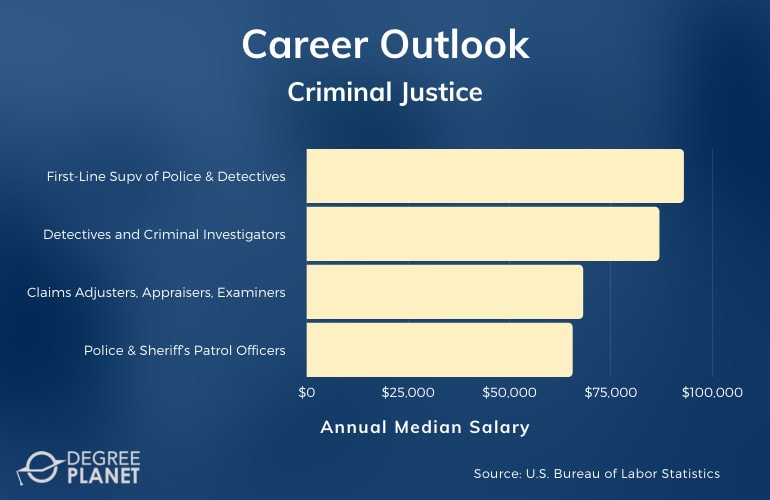
There are many potential careers a bachelor’s degree in criminal justice can prepare you for. According to the Bureau of Labor Statistics, some careers in the criminal justice field and their average salaries are:
| Careers | Annual Median Salary |
| First-Line Supervisors of Police and Detectives | $92,970 |
| Detectives and Criminal Investigators | $86,940 |
| Claims Adjusters, Appraisers, Examiners, and Investigators | $68,130 |
| Police and Sheriff’s Patrol Officers | $65,540 |
Getting your online criminal justice degree may not only allow you to get the job of your dreams. It may be lucrative as well.
Choosing an Online Criminal Justice Program

When you go to select the correct program for you, there are a few things you’ll likely want to consider beforehand. Putting some serious thought into these three small things can help save you a lot of time, money, and hassle later on down the road.
- Selecting an online program: Selecting the correct online program for you can mean a lot of things. First, you’ll need a program that offers you your desired major. Then you need to make sure the program fits your budget. Other important things you may want to consider are whether you can keep up with the pace of the program, how quickly you want to complete the program (accelerated vs. traditional programs), and the course structure (video lecture vs. group discussion).
- Admissions: You’ll need to make sure you meet all the admissions requirements for the program you choose so that you’ll be accepted into it. Many programs no longer require standardized test scores, but some still require minimum ACT or SAT scores. Many programs also have minimum GPA requirements and/or prerequisite classes.
- Accreditation: It is also important to check if the college you are enrolling in has accreditation, preferably regional accreditation. As long as it does have regional accreditation, your degree should be accepted by most employers and agencies, and if you choose to continue on with your education, your credits are more likely to transfers to other U.S. schools.
Taking the time to check these things first will help ensure you have the smoothest college entrance experience possible.
Accreditation

Making sure your college has regional accreditation may be one of the most important things you can do to protect yourself from wasting your time and money on a worthless degree.
A school with regional accreditation has been accredited by one of the following agencies in the U.S.:
- Higher Learning Commission
- Northwest Commission on Colleges and Universities
- Middle States Commission on Higher Education
- Accrediting Commission for Community and Junior Colleges Western Association of Schools and Colleges
- New England Commission of Higher Education
- WASC Senior College and University Commission
- Southern Association of Colleges and Schools Commission on Colleges
- Middle States Commission on Higher Education

Although regional accreditation is technically a voluntary process, schools that don’t have it are often not well-respected, and any degree you earn from an unaccredited school might not be worth your time, effort, or money.
Regional accreditation serves as a sign to employers, the government, and other post-secondary institutions that the accredited school has rigorous programs of study, capable and competent teachers, and acceptable facilities and equipment.
Basically, an accredited college has met at least all the minimum requirements to prove that it’s worthy to educate students and confer degrees upon them. In short, if your school is accredited, your degree will be more widely accepted and easily transferable.
Financial Aid

If you’re serious about pursuing your bachelor’s degree in criminal justice or any other subject, you’re probably going to want to look into obtaining some financial aid to help offset the costs associated with a college education.
There are three main ways to do this. The first is through grants. One of the most well-known is the Federal Pell Grant awarded by the U.S. Department of Education.
You can apply for the Pell Grant by filling out the Free Application for Federal Student Aid (FAFSA). Whether or not you receive a Pell Grant and how much you receive has nothing to do with your GPA or standardized test scores. Instead, if you fall into a certain income bracket and are in good standing with the U.S. Department of Education, you should receive a Pell Grant.
When you fill out the FAFSA, the Department of Education will also let you know which types of student loans you’re eligible for. If you need loans, you can take them as well. If you can survive without them, though, it’s probably best not to take them because they have to be repaid, typically with interest, in the future.
If absolutely necessary, you can also apply for loans from your bank, your credit union, or a private company.
Criminal Justice Scholarships

The third type of financial aid is scholarships. You can check locally and state-wide for scholarships specific to your region or check out your college’s website for school-specific scholarships. There are also many legitimate scholarship websites that have good information. Fastweb is often considered one of the best.
Editorial Listing ShortCode:
If you’re majoring in criminal justice or a related field, there are also some scholarships out there specific to your major. These include the following:
- Ritchie-Jennings Memorial Scholarships: These scholarships are awarded in $10,000, $5,000, $2,500, and $1,000 increments to deserving students who are pursuing majors that lend themselves to a career in fraud examination. The winners of these scholarships are also awarded a one-year membership to the ACFE (Association of Fraud Examiners) Student Association.
- Women in Federal Law Enforcement Scholarship: These scholarships are awarded to deserving female students who are majoring in criminal justice or closely related fields at accredited universities. The scholarships pay $2,500 apiece to each recipient. An essay is required with the application.
- Martin Luther King Jr. Scholarship: This scholarship is awarded to a minority student who is attending an accredited university and majoring in criminal justice. The application packet requires an essay, proof of financial need, proof of college acceptance/enrollment, and proof of academic achievement.
- Melissa Linville Criminal Justice Scholarship: This scholarship was created in honor and memory of Melissa Linville, who spent much of her life working for Legal Aid. It’s given to deserving students majoring in criminal justice at accredited universities.
- National Organization of Black Law Enforcement Executives Scholarship: This scholarship is specifically designed for African American graduating high school seniors who plan to go on to college to major in criminal justice. Applicants must show proof of financial need, have a 3.8 GPA, and write a one-page essay to apply.
These are only a few of the many scholarships out there specific to students majoring in criminal justice or a related field. If you do some digging, you’ll likely turn up many more.

Can You Get a Criminal Justice Degree Online?
There are more colleges now offering criminal justice degrees online than ever before, so yes, it is possible to get a criminal justice degree online. Depending on the college, they may offer an online criminal justice associates degree all the way up to an online masters degree in criminal justice.
As mentioned before, it is important to make sure the online college you’re enrolling in has regional accreditation.
What Is the Best Online College for Criminal Justice?
There is no one best online college for criminal justice or any other major, but there may be an online college that is best for you.
If you find a program that fits into your budget, accepts your previous college credits (if applicable), has your desired major, and has classes that fit your needs, then you will be several steps closer to finding a great online college for you.
Editorial Listing ShortCode:
If that college has some scholarships available that you are eligible for, that may make it the best online college for you.
There are no “best” or “perfect” colleges out there. There is only what’s best for you.

How Much Is an Online Criminal Justice Degree?
Colleges all have vastly different tuition rates, and those rates will differ even further depending on a variety of factors, such as whether you are an in-state or out-of-state student at that university. With that in mind, there’s no exact numerical amount that will tell you how much it will cost to earn your online bachelor’s degree in criminal justice.
We can give you a range, though. If you’re paying in-state tuition at a public college or university, a bachelor’s degree in criminal justice will likely cost you anywhere from about $32,000 to $60,000.
There are online programs that cost less than this, and there are online programs that cost quite a bit more than this, but this is the standard average for most public schools. The rates for private schools are significantly higher.
How Long Does It Take to Get a Criminal Justice Degree Online?
This is another one of those questions to which we can’t give you an exact answer. The amount of time it’ll take you to earn your bachelor’s degree in criminal justice online will depend entirely on you.
For example, if you’re only a part-time student taking one or two classes each semester, it could take you several years to earn your degree.

On the other hand, if you’re a fast-paced learner who can keep up with a sped-up curriculum, then you might want to earn your degree by taking accelerated courses at a college that offers them. In these programs, a normal “semester” isn’t a semester at all.
Instead, each semester is about eight weeks long, sometimes less, meaning you can take several semesters a year. If you do this, you might earn your degree much quicker than normal.
If you are a full-time student that is starting from scratch and taking a full load of classes in both the fall and spring semesters and don’t have to take any remedial classes or retake any classes, then you will likely be able to finish your degree in about four years.
If you already have an associate’s degree in criminal justice, it could potentially only take you two years to earn your bachelor’s.
Editorial Listing ShortCode:
A good rule of thumb to keep in mind is that it typically takes about 120 credit hours to complete an online bachelor’s degree program in criminal justice. By dividing that total by the average amount of credit hours you take each semester, you can estimate how long you’ll be in school.
How Much Can You Make in a Criminal Justice Career?
The average salary for people with criminal justice degrees varies and is based largely on what jobs they take after earning their degrees and in what states they’re working. According to the Burea of Labor Statistics, those with degrees in the field of security and protective service, which includes criminal justice degrees, earn an average annual salary of $50,000.
Universities Offering Online Criminal Justice Bachelor’s Program
Methodology: The following school list is in alphabetical order. To be included, a college or university must be regionally accredited and offer degree programs online or in a hybrid format.

Founded in 1886 as a public school, Arizona State University has become known internationally as well. Many of their undergraduate and graduate programs are designed to teach students about social and environmental issues and how to manage them.
Principles that ASU has deemed vital throughout their teachings are sympathy, management, and mindfulness of social issues.
- BS in Criminology and Criminal Justice
Arizona State University is accredited by the Higher Learning Committee.

Initially founded in 1966, Bellevue University, as it came to be named in 1994, is a private higher academic learning facility. One thing that makes Bellevue University stand apart from other schools is being one of the first private universities to offer its MBA program online.
Many of their online programs lead to bachelor’s and master’s degrees with concentrations in technology, business, and education.
- BS in Criminal Justice
Bellevue University is accredited by the Higher Learning Commission.
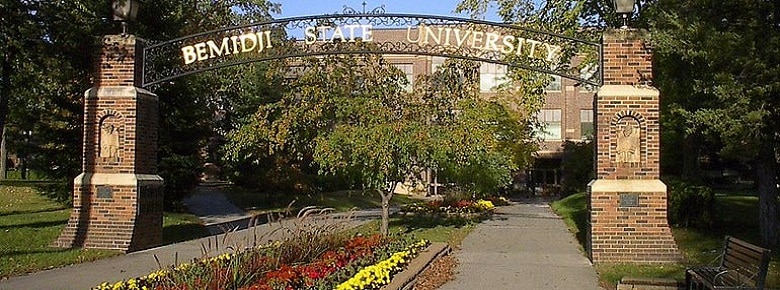
Bemidji State University began in 1919 as a public institution with the goal of increasing the number of people trained to be teachers. Since that time, they have increased their population of students seeking secondary education by the way of bachelor’s and master’s degree programs.
Their online programs assist those around the world as well. Although BSU offers many programs, its focus is on the commitment of local and worldwide matters, as well as the environment.
- BS in Criminal Justice
Bemidji State University is fully accredited by the Higher Learning Commission.

Feeling the need to offer educational opportunities to as many people as possible from all backgrounds, Excelsior College opened in 1971 as a private college. This need is fulfilled by their 40 plus programs across six specialties that lead to undergraduate and graduate degrees.
EC provides this education via e-learning and directed studies with aptitude tests.
- BS in Criminal Justice
Excelsior College is accredited by the Commission on Higher Education of the Middle States Association of Colleges and Schools.

Started in 1771 as a parochial school, Liberty University is now one of the oldest tertiary educational institutions. All levels of degrees are available, with over 600 subjects to choose from. Of these many degrees and subjects, they specialize in business and criminal justice. The student body is made up of both national and international students.
- BS in Criminal Justice – Business Administration and Management
- BS in Criminal Justice – Crime Scene Investigation
- BS in Criminal Justice – Criminal Psychology
- BS in Criminal Justice – Public Administration
Liberty University is accredited by the Southern Association of Colleges and Schools Commission on Colleges.

Old Dominion University began in 1930 with the purpose of educating the public. With over 100 bachelor’s degree programs and a multitude of graduate degree programs, this institution has become well known in the international arena.
Their focus is to combine academics and research in order to provide a comprehensive education. This training is supplied via traditional in-person classes and distance learning.
- BA in Criminal Justice
- BS in Criminal Justice
Old Dominion University is accredited by the Southern Association of Colleges and Schools Commission on Colleges.

Pennsylvania State University’s longstanding history as a public educator originated in 1855. Historically, they have offered training that includes technology, research, and innovation. PSU instructional locations span over 20 locations and provide bachelor’s, master’s, and doctoral programs.
Criminal Justice is just one of the many programs Pennsylvania State University offers.
- BS in Criminal Justice
Pennsylvania State University is regionally accredited by Middle States Association of Colleges and Schools.

In 1946, Portland State University began as an institution for World War II veterans and has since become known as a powerful public educational institution.
Portland State University’s programs focus on research. This focus allows students to use their unconventional and imaginative thinking to earn undergraduate and graduate degrees in over 240 programs that encompass business administration, criminal justice, black studies, and many other subjects.
- BA in Criminal Justice
- BS in Criminal Justice
Portland State University is accredited by the Northwest Commission on Colleges and Universities.

Saint Leo University began as a private, Catholic school in 1889. While providing all levels of education from associate degrees to post-secondary graduate degrees, their focus is on community-based service and assisting students in personal growth.
Saint Leo University has a dynamic distance learning program that reaches students on a worldwide scale.
- BA in Criminal Justice – Criminalistics
- BA in Criminal Justice – Homeland Security
Saint Leo University is accredited by the Southern Association of Colleges and Schools Commission on Colleges.
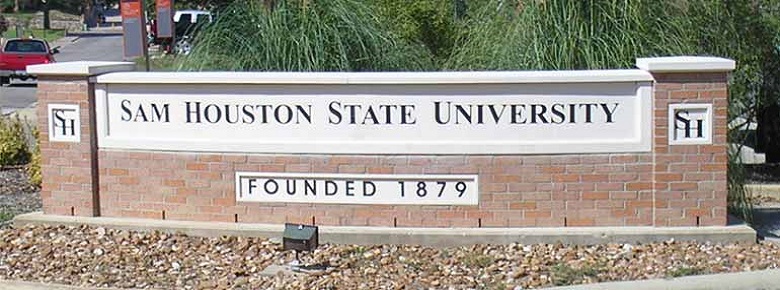
Founded in Texas in 1869, Sam Houston State University is one of the most tenured public universities in Texas. SHSU has earned a lot of respect because of its student success rates.
When founded, the school’s primary focus was the training of teachers. Today, it provides 170 programs of study that span across all levels of higher education, starting with bachelor’s degrees. Programs of study include humanities, health, engineering, business, and more.
- BA in Criminal Justice
- BS in Criminal Justice
Sam Houston State University is accredited by the Southern Association of Colleges and Schools Commission on Colleges.
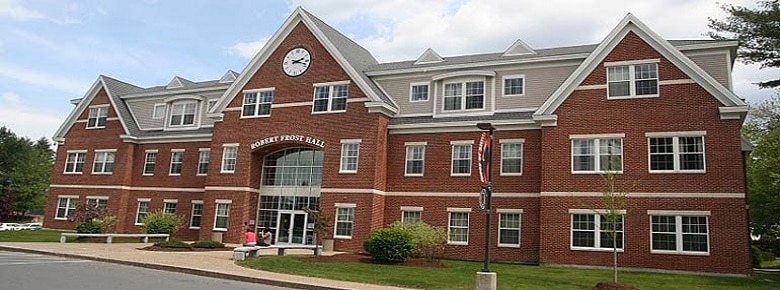
Southern New Hampshire University is a private learning facility that began in 1932. They have since become like many other schools and offer a blend of traditional and distance instruction in order to reach students from around the world.
This instruction includes all levels of secondary education after high school and provides programs in more than 200 fields of study.
- BS in Criminal Justice
Southern New Hampshire University is accredited by the New England Commission of Higher Education, Inc.

Thomas Edison State University began its public instruction in 1972. TESU caters to adult learners by specializing in non-traditional approaches to secondary levels of education through self-study, military experience, portfolios, and exams.
These various approaches can be found in their over 100 degrees of study, which are offered primarily online through programs such as Study.com.
- BA in Criminal Justice
Thomas Edison State University is accredited by the Middle States Commission on Higher Education.
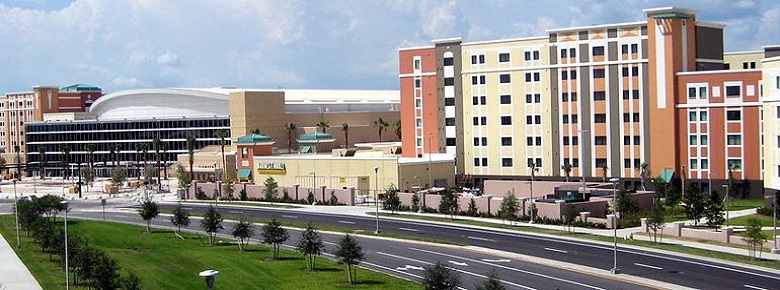
The University of Central Florida originated in 1963 as a public institution with the mission of training students for the ongoing space exploration program. While this is still their primary mission, UCF now offers over 220 fields of study, in formats ranging from the traditional brick-and-mortar school to online distance education.
Students can earn degrees ranging from bachelor’s degrees to PhDs.
- BA in Criminal Justice
- BS in Criminal Justice
The University of Central Florida is accredited by the Southern Association of Colleges and Schools Commission on Colleges.

The University of Cincinnati debuted as a public institution in 1819. Given their longstanding tenure, the number of learners served every year is in the thousands and is now known worldwide as one of the top research universities (U.S. News & World Report).
Students are offered many learning opportunities through its vast fields of study, which range from undergraduate to postgraduate degree programs.
- BS in Criminal Justice
The University of Cincinnati is accredited by the Higher Learning Commission.
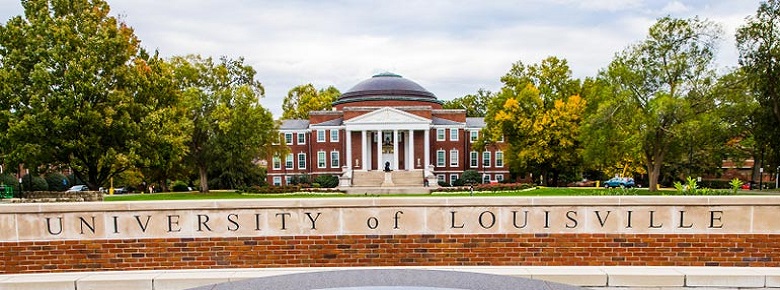
The University of Louisville is a public facility that got its start in the Kentucky state university system of study that was established in 1798. The University of Louisville offers a diverse selection of studies for undergraduate, graduate, and professional learners. Their school of medicine is world-renown for its contribution to the field of transplant surgeries.
- BS in Criminal Justice
The University of Louisville is accredited by the Southern Association of Colleges and Schools Commission on Colleges.
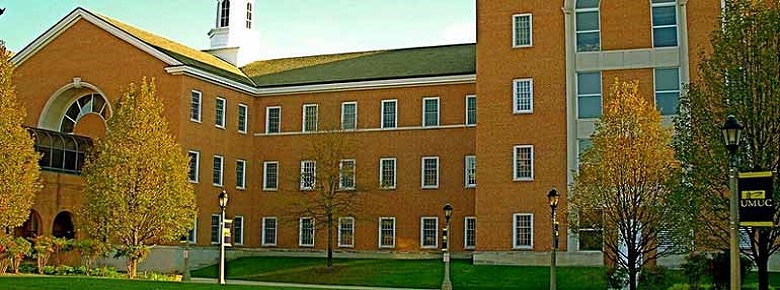
Serving students since 1947, the University of Maryland global campus offers an array of undergraduate and graduate degrees. This public school has on-campus and distance learning programs to allow for flexibility.
Allowing students to turn personal experiences, such as military and career training, into college credit is one way UMGC sets itself apart from other schools.
- BS in Criminal Justice
UMGC is accredited by the Middle States Commission on Higher Education.

The University of Massachusetts Global is a private institution that began providing educational programs that lead to undergraduate, graduate, and post-grad degrees in 1958. Its many educational offerings appeal to students from a diversity of backgrounds.
A mixture of physical and distance learning classes makes up their numerous courses in subjects such as health care, criminal justice, and business.
- BA in Criminal Justice
University of Massachusetts – Global is regionally accredited by the Western Association of Schools and Colleges.
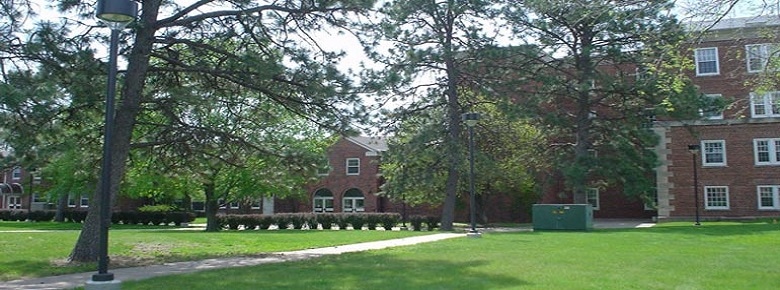
Established in 1905, the University of Nebraska—Kearney offers an array of undergraduate and graduate degrees and makes getting a public education an easy option for busy adults. UNK has a number of on-campus learning options, but many of the degrees offered can be achieved through online study options.
- BS in Criminal Justice
The University of Nebraska at Kearney is accredited by the Higher Learning Commission.
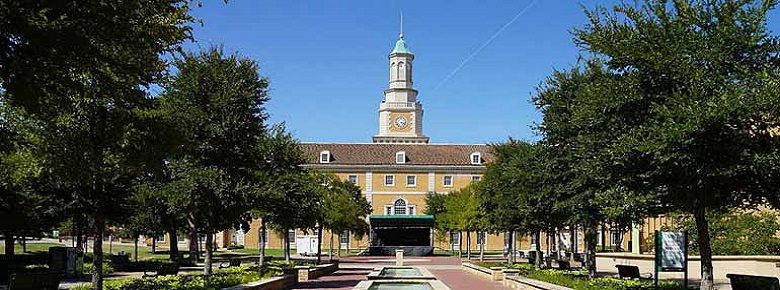
The University of North Texas is a world-renowned public academic institution that has been providing education since 1890. This large educational entity serves thousands of students annually by giving them ways to gain undergraduate, graduate, and doctoral degrees.
Some of the programs offered at UNT include criminal justice, education, and business studies.
- BS in Criminal Justice
The University of North Texas is accredited by the Southern Association of Colleges and Schools Commission on Colleges.

Opened in 1976, the University of Phoenix provides private, flexible education options to students worldwide. The University of Phoenix provides undergraduate, graduate, and certificate programs to individuals looking for personal and career advancement.
With accelerated degree options that offer six-week courses, UP makes getting a degree quicker and more affordable.
- BS in Criminal Justice Administration
The University of Phoenix is regionally accredited by the Higher Learning Commission.
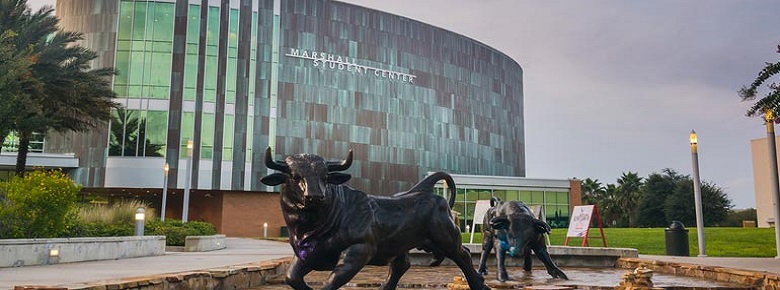
Established in 1856, the University of South Florida has a longstanding history of public education.
As a research facility, the University of South Florida offers an assortment of degree programs that lead to undergraduate, graduate, and professional degrees that are rich with innovative technology and hands-on learning. USF serves students across the nation and throughout the world.
- BSAS in Criminal Justice
USF is accredited by the Southern Association of Colleges and Schools Commission on Colleges.

Walden University breaks down traditional education barriers by offering an online learning platform to thousands of students each year. Opened in 1970, Walden University helps students achieve bachelor’s, graduate, and professional degrees in many fields of study.
Walden University stretches across the globe in its commitment to serve all students who are seeking academic advancement.
- BS in Criminal Justice
Walden is accredited by the Higher Learning Commission.

Washington State University is a world-renowned public learning facility that opened in 1890. WSU is committed to finding solutions to environmental and social issues that face the world today. Students at Washington State University have access to an assortment of studies that range from undergraduate degree programs to professional programs.
- BA in Criminal Justice and Criminology
Washington State University is accredited by the Northwest Commission on Colleges and Universities.

Opened in 1889, Western Carolina University is located in the heart of western North Carolina. Students at Western Carolina University have opportunities to obtain undergraduate and graduate degrees in a variety of academic majors.
With research and innovation at the forefront, WCU strives to help students become industry leaders in their fields.
- BS in Criminal Justice
Western Carolina University is accredited by the Southern Association of Colleges and Schools Commission on Colleges.
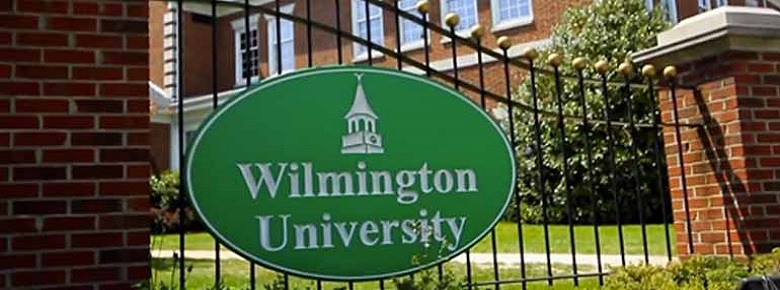
Wilmington University began in 1968 as a private educational system. Today, they grant an assortment of associate, bachelor’s, and graduate degrees. Wilmington University rates high in research activity and low in classroom sizes.
Allowing students to attend classes via distance learning or at one of its campus locations, Wilmington University has many dynamic and flexible program options.
- BS in Criminal Justice
Wilmington University is accredited by the Middle States Commission on Higher Education.
Getting Your Criminal Justice Bachelors Degree Online

There’s maybe never been a better time to apply for your criminal justice bachelor’s degree online. If you’ve always dreamed of working in criminal justice, upholding the law, helping to keep America safe, or rehabilitating juveniles, this could be the degree for you.
Most online degrees are now widely respected by employers and other colleges. They’re also more affordable than ever before, and there are all kinds of financial aid opportunities that may be able to help you.
You don’t have to waste another day sitting around and dreaming about what your future could look like. You can take the first step toward making that future a reality by applying to schools today.

